-
 Are You Looking for a Water Purifier to Suit Your Sleek Modular Kitchen(2021)? 10 Best Under Sink Water Purifiers to Save Room in Your Kitchen
Are You Looking for a Water Purifier to Suit Your Sleek Modular Kitchen(2021)? 10 Best Under Sink Water Purifiers to Save Room in Your Kitchen
-
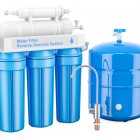 Can't Figure Out the Best Water Softener for Your Home? A Complete Guide on Water Softeners, Things to Look for and the Best Alternatives in the Market (2020)
Can't Figure Out the Best Water Softener for Your Home? A Complete Guide on Water Softeners, Things to Look for and the Best Alternatives in the Market (2020)
-
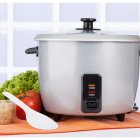 Is a Rice Cooker Worth It(2020)? How Do They Work?Here is a Guide on How to Properly Use a Rice Cooker
Is a Rice Cooker Worth It(2020)? How Do They Work?Here is a Guide on How to Properly Use a Rice Cooker
Having a Clean Chimney: Start by Knowing the Different Types of Kitchen Chimney Filters
Kitchen chimneys are probably the most important element of a clean kitchen. They keep all the smoke and vapors away while cooking. And, thanks to this, your kitchen doesn't smell of grime or grease anymore. But guess what? Kitchen chimneys are often the most ignored when it comes to cleaning. Always remember that You have to deep clean the kitchen chimney on a timely basis for the equipment to work without any hitches. Also, regular maintenance ensures that the kitchen chimney functions efficiently and to its full potential.
But before we get ahead with the cleaning part, it is important to know about the different types of chimney filters. Each of the filters calls for a different cleaning method and disassembling.
Here are the main types of kitchen chimney filters used popularly in India.
Cassette or Mesh Filters
This is one of the most commonly used filter types in kitchen chimneys. In the mesh type of filter, the air is sucked through multiple layers of aluminum mesh. Also known as the cassette filter, this filter leaves behind a lot of grime or stickiness on the mesh. But it is not easy to clean. Hence, this filter is best used for cooking styles where less oil and spice are involved.
Baffle Filters
Baffle filters are usually made from aluminum or stainless steel. These kinds of filters have equally spaced, and thick baffles set side by side on a slab. They offer optimized airflow and helps to capture grease efficiently. The oily impurities drain along with the baffles and move into a collecting trough. Hence, they are effortless to clean and best for Indian kitchens.
Charcoal Filters
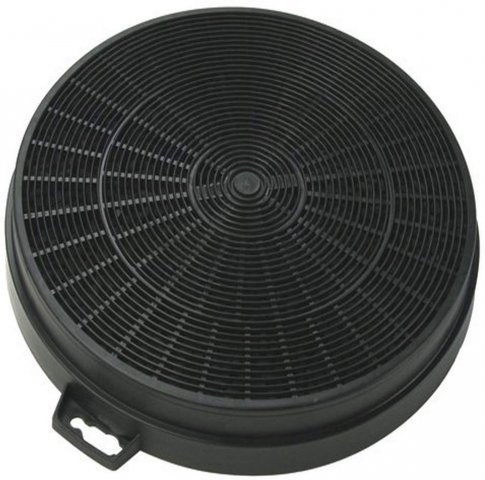
This filter is made up of a charcoal slate with holes in it. The holes absorb oil and smoke particles in the kitchen. It is used in conjunction with baffle or mesh filters. They are not washable and has to be replaced every 3 or 4 months. These filters are suited for Indian cooking but are very expensive.
5 Different Ways to Clean Kitchen Chimney
If you are into some quick cleaning of the kitchen chimney, then you don't have to take the whole chimney apart. You can go with a quick dab with a cloth and cleaning liquid. But in order to thoroughly clean all parts of the kitchen chimney - filter, mesh, baffles, and hood, you need to go into some deep cleaning solutions. Here are five different ways to clean your kitchen chimney like a pro. The best part is that all methods are natural and will not harm the expensive kitchen chimney! Also, these methods are all tried and proven to be effective.
With White Vinegar
White vinegar is a commonly available ingredient and is mostly found in all households. It is a good cleaning agent and can be used for multipurpose cleaning. Vinegar has disinfectant properties owing to its acidic and abrasive nature. As a result, you can also keep germs away apart from cleaning the chimney. To clean the kitchen chimney with white vinegar, follow the below-mentioned steps:
- Take a tub filled with hot water.
- Add 1 to 2 cups of vinegar into the water and mix well.
- Immerse the chimney filters into the solution and leave for 2 hours.
- Scrub with a non-abrasive scrubber.
- Wipe with a wet cloth and dry completely.
To clean the chimney's hood, dip a paper towel in the vinegar solution, and wipe clean.
With Baking Soda
Acclaimed to be an all-purpose cleaning agent, baking soda is also an excellent idea when cleaning kitchen chimneys. Owing to the alkaline and abrasive properties, baking soda can break down grease and clean surfaces without causing any harm. Chemically known as Sodium bicarbonate, baking soda is also great for scrubbing away tough stains.
- Make a thick paste with 2 tablespoons of baking soda with little water.
- Apply this paste over the surface and leave on for 5 minutes.
- Wipe it off with a moist cloth.
To clean the mesh and filters
- take a big tub and fill with hot water.
- Add 2 cups of vinegar and 2 to 3 tbsps of baking soda to this.
- Mix well and soak the filters and mesh for 2 hours.
- Rinse with clean water and dry off before fixing.
With Dishwashing Liquid
Dishwashing liquids consist of chemicals that are specifically designed to remove grease and oil. The liquid surfactants present in the detergent will break down the oil deposits and cuts down tough grease stains.
- Remove the filters and mesh from the kitchen chimney.
- Apply a generous amount of the dishwashing liquid and scrub gently.
- Place these filters and mesh in a tub filled with hot water.
- Let it sit for around 2 hours.
- Scrub with a non-abrasive scrubber and wash with plain water.
- Dry well before fixing.
With Paint Thinner
Paint thinners are powerful solutions containing organic solvents like acetone, toluene, turpentine, and other mineral spirits. As a result, they have the capability of removing stubborn grease and oil stains—however, a word of caution. The solvents in the paint thinner evaporate easily and result in you inhaling quite a lot of the harmful vapors. So, always refrain from cleaning the whole filters like in the previously mentioned methods. Instead, you can clean the hard to reach places and crevices in the kitchen chimney (where the most stubborn grease is found).
- Take a piece of cotton cloth.
- Soak the cloth with paint thinner or nail polish remover.
- Gently scrub the spots with stubborn grease and oil.
- Wash the filters and mesh with plain water.
- Dry them thoroughly before placing them back in the chimney.
With Caustic Soda
Caustic soda or sodium hydroxide is commonly used in industries as a cleaning agent. However, it is generally not used in households as it is strong in composition and may cause chemical burns if handled inappropriately. But if you are dealing with stubborn stains and grease, then maybe the previously mentioned methods may not cut it.
- Remove the baffles, mesh, and filters.
- Place them in a metal bucket or heavy-duty plastic tray/bucket.
- Sprinkle caustic soda over all the components and let sit for 5 minutes.
- Pour hot water over this until fully immersed.
- After about 3 hours, wash them clean with plain water.
- Dry in the open air.
Two tips to keep in mind while you are using caustic soda:
- The process releases fumes that may cause lung and eye irritation. So always do this in a well-ventilated space.
- To avoid getting chemical burns, make sure to use safety gear like rubber gloves, eye protection, and boots while cleaning.
Why Cleaning the Kitchen Chimney is Essential?
Kitchen chimneys are designed to absorb smoke, airborne grease, fumes, and steam while cooking, which is then vented outside. Kitchen chimneys have several working components that trap substances like grease, droplets, and soot.
So, if you do not clean the parts of the kitchen chimney on a regular basis:
- the grease and grime deposit in thick layers over the filters and eventually block the air and gas flow through the chimney. This will not only reduce the efficiency in the working of the kitchen chimney but also reduce the life of the equipment.
- it will result in the development of microbial infestation in the filters. Deposits of grease and grime become hot spots for the growth of bacteria and fungus and can lead to many health hazards in the long run.
- it can result in a foul smell or odor to arise while in operation.
Tips to Consider while Cleaning Kitchen Chimney
The frequency of cleaning your kitchen chimney ideally depends on the type of food you prepare and the number of times you use it in a day. If you generally prepare oily and spicy food, it is best to clean the meshes and filters at least once in 2 months. If you have a charcoal filter in the chimney, then make sure to replace it every six months.
Some of the modern-day kitchen chimneys have the option to auto clean themselves. Upon clicking a button, the chimney's heating elements break down the grease and oil and send it to an oil collector box. All you have to do is to remove the collector and clean it thoroughly.
However, most of the commonly used kitchen chimneys in India require your regular maintenance and cleaning effort. Here are some important tips to keep in mind while cleaning kitchen chimneys:
- Use natural products to clean: Kitchen chimneys are pieces of equipment that require regular maintenance. Most commercial cleaning products have strong chemicals that may damage the chimneys' surface upon frequent use. So, using natural cleaning products would be the best bet to not compromise on your kitchen chimney's quality and longevity.
- Clean at frequent intervals: Procrastination in cleaning is not a good idea. The longer you take to start cleaning, the longer you will take to get the job done. So, it is always better to clean all kitchen equipment at regular intervals, especially those that get dirty soon (like kitchen chimneys).
- Be sure of disassembling before cleaning: So, you are all excited to get the kitchen chimney clean for once and for all. But, are you sure of how to disassemble it and, most importantly, to put it back? So, always ensure to get a good look at the instructions on removing the baffles, mesh, and filters in the kitchen chimney before actually proceeding to do it.
FAQs on How to Clean Kitchen Chimney
Cleaning the kitchen chimney is not an easy job. There are certain things that you need to give importance to while deciding to clean the electrical equipment. However, the process is worthwhile if you follow the recommended steps in cleaning and using the right cleaning agents. Nonetheless, the process of cleaning the kitchen chimney is viewed with much apprehension. There are always quite a few questions that pop up now and then.
Here are a few FAQs related to cleaning the kitchen chimney:
- Can I clean the kitchen chimney motor? How do I go about doing it?
Yes, you can clean the kitchen chimney motor at home. Cleaning the smoke suction assembly requires you to first detach the motor by using the screwdriver. Wipe off all the small dust particles from the motor. Using a natural cleaning ingredient like vinegar or baking soda, clean the motor with a cotton cloth. Always ensure that the motor doesn't come in direct contact with water. - How can I tell if my kitchen chimney requires cleaning?
It would be best if you looked out for certain signs in deciding when to clean the kitchen chimney. Here are some of them:- Odor of burnt wood is coming from the fireplace when it is in use.
- Smoke from the fire is not being fully absorbed into the chimney.
- Sticky or grimy grease stains on the surface of the filter.
- Are auto clean electric chimneys good?
Auto clean kitchen chimneys are equipment that facilitates zero or the least maintenance. There is provision for the oil particles stuck in the filter to loosen up and drain into a collector upon auto-heating it in these chimneys. Auto clean kitchen chimneys are good if you are short on time in cleaning or cannot be involved in the cleaning process due to health reasons. However, purchasing an auto clean kitchen chimney is an expensive affair.
Kitchen chimney is a powerful tool when it comes to keeping oil, grease, and smoke out of your kitchen. Traditional electric chimney models require extensive cleaning and maintenance at regular maintenance. Auto clean kitchen chimneys, on the other hand, are easy to maintain. Any modern kitchen is well equipped with the latest amenities, including an electric kitchen chimney. You can inherently use the kitchen chimney to its full potential if you vow to clean it thoroughly at regular intervals of time.
-
 Can't Figure Out the Best Water Softener for Your Home? A Complete Guide on Water Softeners, Things to Look for and the Best Alternatives in the Market (2020)
Can't Figure Out the Best Water Softener for Your Home? A Complete Guide on Water Softeners, Things to Look for and the Best Alternatives in the Market (2020)
-
 Is a Rice Cooker Worth It(2020)? How Do They Work?Here is a Guide on How to Properly Use a Rice Cooker
Is a Rice Cooker Worth It(2020)? How Do They Work?Here is a Guide on How to Properly Use a Rice Cooker
-
 Learn How to Clean a Fridge the Easiest Way Possible with Tips on How to Keep That Foul Odour Away from Your Refrigerator (2021)
Learn How to Clean a Fridge the Easiest Way Possible with Tips on How to Keep That Foul Odour Away from Your Refrigerator (2021)
-
 An Electric Kettle Can Be a Versatile Kitchen Accessory if You Kow How to Use it Rightly: Electric Kettle Uses- Besides Boiling Water & Making Hot Beverages (2020)
An Electric Kettle Can Be a Versatile Kitchen Accessory if You Kow How to Use it Rightly: Electric Kettle Uses- Besides Boiling Water & Making Hot Beverages (2020)
-
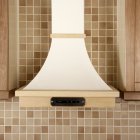 Keep Your Kitchen Free from Fumes and Odours. Check out the 10 Best Kitchen Chimneys in India and Tips to Get Optimum Performance from Them (2020)
Keep Your Kitchen Free from Fumes and Odours. Check out the 10 Best Kitchen Chimneys in India and Tips to Get Optimum Performance from Them (2020)
It is Crucial to Clean the Kitchen Chimney Frequently!
Your kitchen chimney has to take in a lot of pollutants (obviously!), keeping your kitchen environment healthy. However, as more and more dust and smoke are collected in the chimney, it gradually gets inefficient. Every type of chimney comes with a minimum period for which it can work efficiently, after which you must clean it yourself or have it served by company officials!

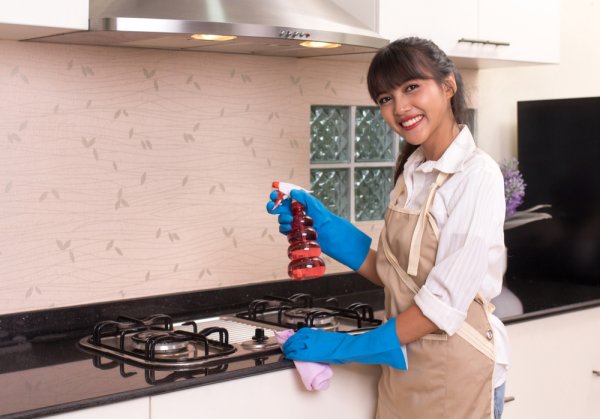


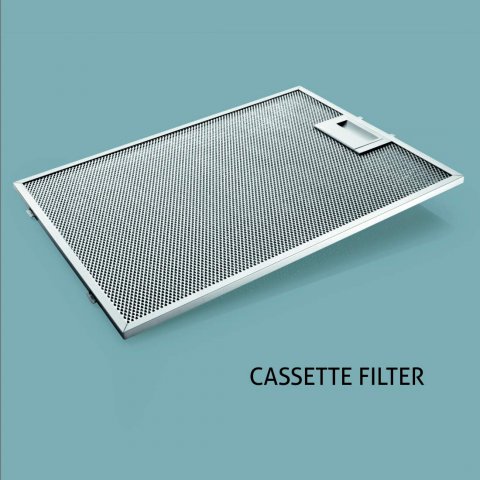
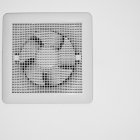
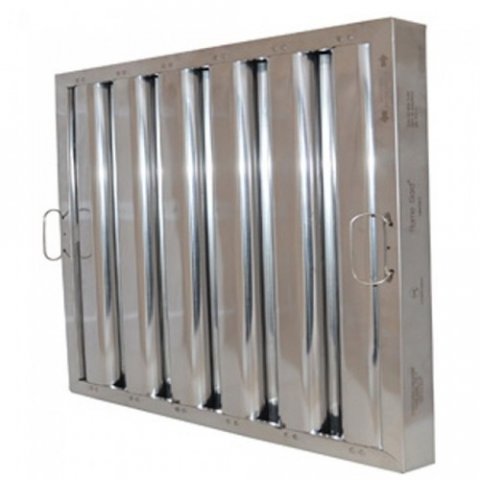

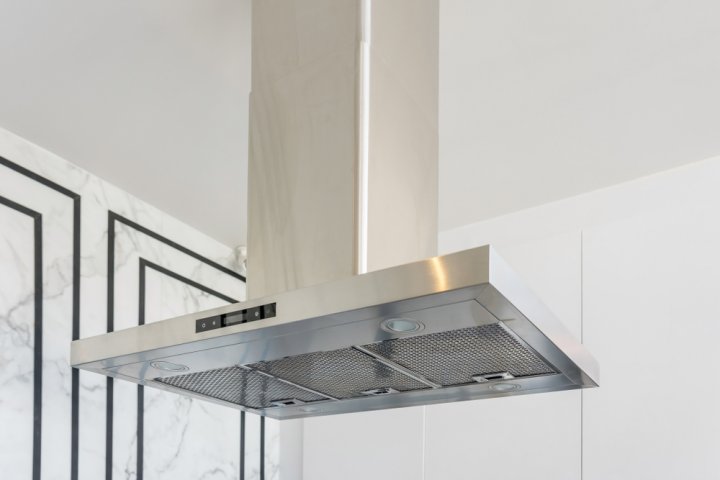


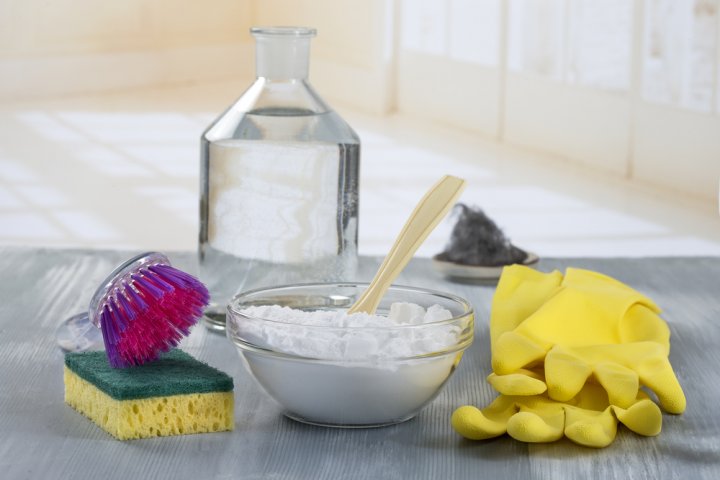

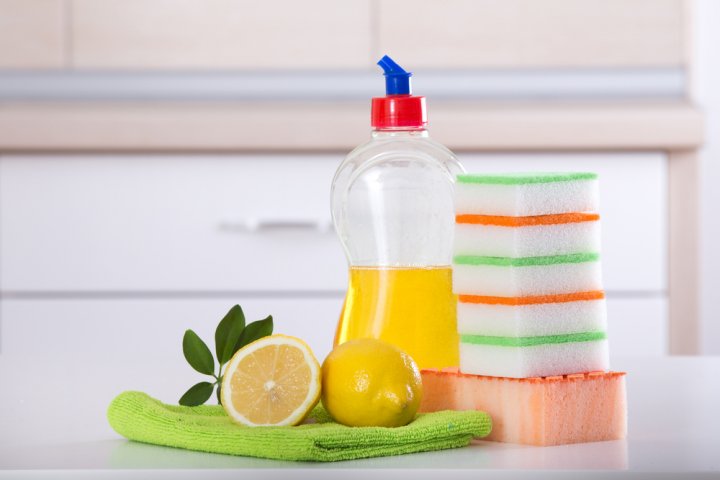
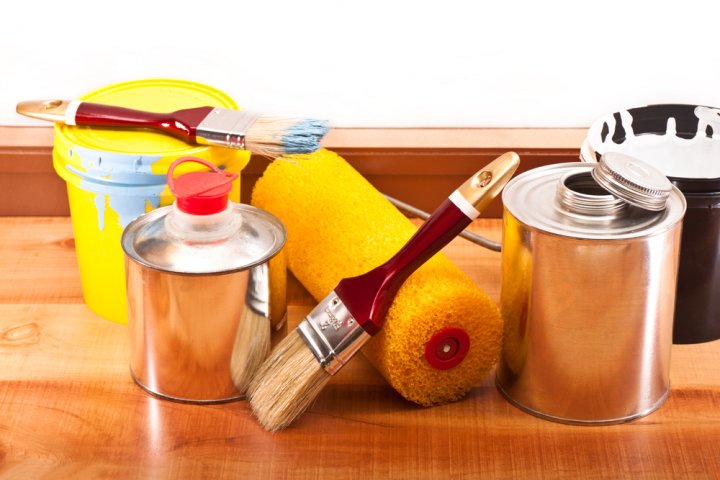

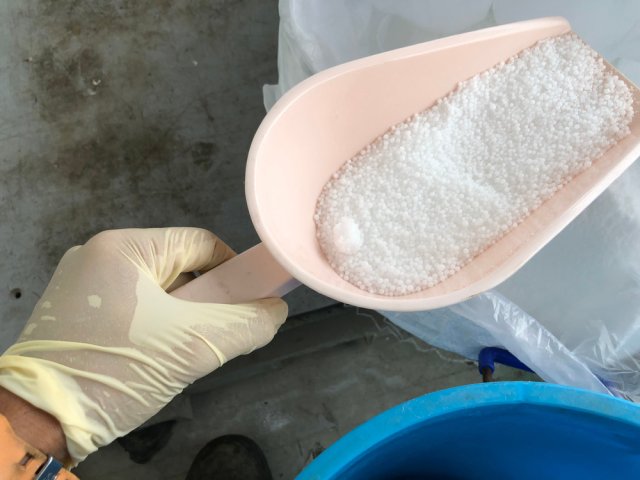
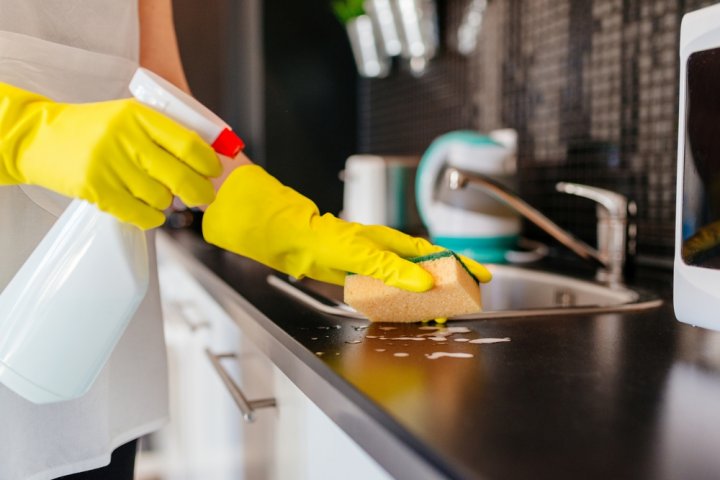




 Highlight the Best Facets of Your Incomparable Beauty: Discover the Best Face Highlighter Currently Available in India and Everything You Need to Know About Using Face Highlighters for Maximum Effect (2023)
Highlight the Best Facets of Your Incomparable Beauty: Discover the Best Face Highlighter Currently Available in India and Everything You Need to Know About Using Face Highlighters for Maximum Effect (2023)
 Forget the Blemishes and Get that Picture Perfect Flawless Radiance on Your Face: Check out the Best Foundations for Oily Skin Currently Available in India and Everything You Need to Know About Makeup Foundations (2023)
Forget the Blemishes and Get that Picture Perfect Flawless Radiance on Your Face: Check out the Best Foundations for Oily Skin Currently Available in India and Everything You Need to Know About Makeup Foundations (2023)
 Make Your Presence Felt Wherever You Go: Discover the Best Perfumes Under 2000 for Both Men and Women to Announce Your Arrival and Make Any Occasion Memorable (2023)
Make Your Presence Felt Wherever You Go: Discover the Best Perfumes Under 2000 for Both Men and Women to Announce Your Arrival and Make Any Occasion Memorable (2023)
 Protect Your Oily Skin from the Harmful Rays of the Sun: Discover the Best Gel Based Sunscreens for Oily Skin and Everything You Need to Know Before Buying One (2023)
Protect Your Oily Skin from the Harmful Rays of the Sun: Discover the Best Gel Based Sunscreens for Oily Skin and Everything You Need to Know Before Buying One (2023)
 Minor Blemishes and Wrinkles Affecting Your Confidence? Check out the Best BB Creams to Conceal Your Worries and Nourish Your Skin to Restore the Healthy, Radiant and Glowing Complexion Back Again (2023)
Minor Blemishes and Wrinkles Affecting Your Confidence? Check out the Best BB Creams to Conceal Your Worries and Nourish Your Skin to Restore the Healthy, Radiant and Glowing Complexion Back Again (2023)
